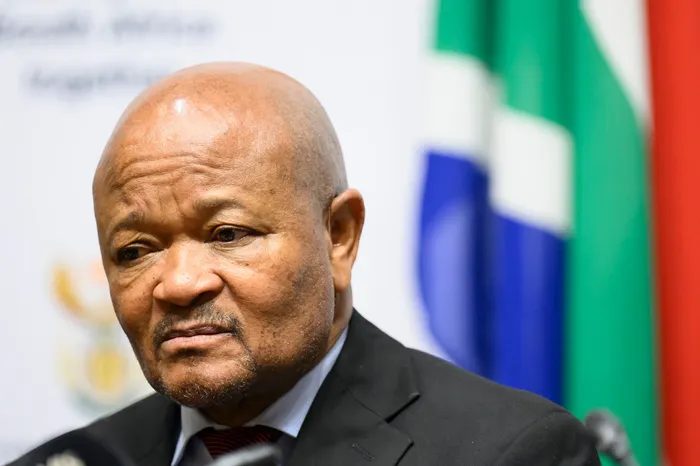D-Day for Senzo Mchunu to clarify alleged political interference at SAPS

Suspended Police Minister Senzo Mchunu is set to testify before the parliamentary inquiry looking at political interference in the police.
Image: Henk Kruger/Independent Newspapers
THE controversial directive to disband the Political Killings Task Team (PKTT) will come under scrutiny when suspended police minister Senzo Mchunu appears before the parliamentary inquiry into allegations of corruption within the criminal justice system.
It will be the first time that he is officially responding to KwaZulu-Natal Police Commissioner, Lieutenant-General Nhlanhla Mkhwanazi’s damning allegations linking him to criminal syndicates that have infiltrated the police and the criminal justice system.
Mchunu issued the directive to National Commissioner General Fannie Masemola on 31 December 2024 to immediately disband the PKTT, which he deemed was no longer required.
He now has a mammoth task to dispel some of the testimony that has been made at the inquiry, largely showing that he had no authority to disband the PKTT as this was an operational decision to be made by the national commissioner.
Testifying before the Ad Hoc Committee last week, Mkhwanazi said the PKTT was formed after the police management was given a directive by the Inter-Ministerial-Committee (IMC) to come up with a plan to investigate political killings.
He had said the PKTT was accountable to Masemola, who in turn was accountable to the IMC.
Both Mkhwanazi and Masemola told the Ad Hoc Committee that Mchunu did not have the authority to disband the task team and that he had overreached his powers.
Mkhwanazi even told the inquiry that Mchunu did not speak to him about the disbandment of the PKTT and Masemola has claimed that Mchunu was never briefed about the work of the task team, nor received a report on its performance.
Mkhwanazi also said he did not believe Mchunu was the author of the directive and that Parliament had to establish what led to him signing the December 31 letter.
Mchunu’s testimony comes a week after search and seizure warrants were executed by the police to obtain electronic devices including laptops and cellphones at suspended Deputy Police Commissioner Shadrack Sibiya’s house and the flat of Mchunu’s chief of staff Cedrick Nkabinde.
The team was stopped at the gate of Mchunu's residence and refused entry by the police providing guarding services there, prompting the minister’s lawyers to write to the Ad Hoc Committee.
Mchunu’s lawyers had complained in a letter to the inquiry that the actions of the police were concerning as Mchunu and Nkabinde were the subject of the testimony tendered by Mkhwanazi in the parliamentary inquiry and Madlanga Commission of Inquiry.
They noted that Mkhwanazi claimed to possess evidence of Mchunu's wrongdoing and characterised the PKTT's actions 'as intimidation and a fishing expedition designed to support Mkhwanazi's allegations'.
“This conduct is unacceptable as it compromises the investigation that is currently conducted by the Ad Hoc Committee. Our client simply does not know or has no way of knowing what may happen to the mobile phones that the police want to seize,” reads the letter.
The search and seizure related to the case of defeating the ends of justice that was opened by Mkhwanazi after he obtained an affidavit from Masemola on July 4, two days before his infamous press briefing.
He lodged the criminal complaint against those he believed were behind the attempts to disband the PKTT.
“For now what we are accusing the minister of, is the minister’s failure to protect the organisation,” he told the inquiry.
Cape Times